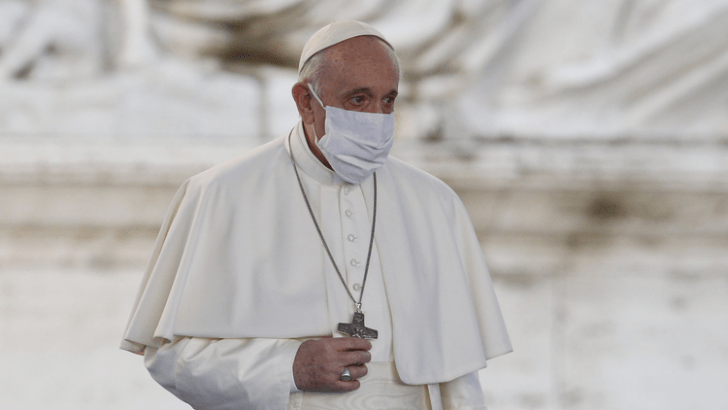The Argentine Pontiff has in the past supported the inclusion of gay couples in civil unions, but saying as Pope puts him at odds with the hitherto official Vatican line writes Michael Kelly
Pope Francis is making the headlines with reports that he has used an interview for a new documentary film to offer his support for the legal protection of gay couples.
This is not a new position for Francis, but the fact that he is voicing it as the Pope and it puts him at odds with an official Vatican document wil raise eyebrows.
As Archbishop of Buenos Aires he supported a 2010 plan that would include gay people in civil unions being offered to other people living together. At the same time, Cardinal Bergoglio staunchly resisted any attempt to re-define marriage away from the traditional Christian understanding of being between one man and one woman.
Reflecting on the pastoral care of gay people in the Church, Pope Francis tells the film: “Homosexuals have a right to be a part of the family. They’re children of God and have a right to a family. Nobody should be thrown out, or be made miserable because of it”.
He then addresses the issue of partnerships: “What we have to create is a civil union law. That way they are legally covered,” the Pope said. “I stood up for that.”
The remarks come in Francesco, a documentary on the life and ministry of Pope Francis which premiered on October 21 as part of the Rome Film Festival.
In his book The Great Reformer, Papal biographer Austen Ivereigh recounts a 2010 move by the government in Argentina to legalise same-sex marriage.
“Bergoglio knew many gay people and had spiritually accompanied a number of them. He knew their stories of rejection by their families and what it was like to live in fear of being singled out and beaten up. He told a Catholic gay activist, a former theology professor named Marcelo Márquez, that he favoured gay rights as well as legal recognition for civil unions, which gay couples could also access. But he was utterly opposed
to any attempt to redefine marriage in law,” Dr Ivereigh recalls.
A close associate of the future Pope is quoted in The Great Reformer as saying that Cardinal Bergoglio “wanted to defend marriage but without wounding anybody’s dignity or reinforcing their exclusion.
“He favoured the greatest possible legal inclusion of gay people and their human rights expressed in law, but would never compromise the uniqueness of marriage as being between a man and a woman for the good of children,” the source is quoted as saying.
Dr Ivereigh also points out how “Bergoglio had not raised strong objections to a 2002 civil unions law that applied only to Buenos Aires and that granted rights to any two people cohabiting for more than two years, independent of their gender or sexual orientation.
“He regarded it as a purely civic, legal arrangement that left marriage unaffected; it granted some privileges but not the right to adopt or any automatic right to inheritance,” Dr Ivereigh rights.
The book adds that the Archbishop of Buenos Aires was criticised the following year when the Vatican issued a document binding bishops and Catholic politicians to give “clear and emphatic opposition” to any legal recognition of homosexual unions.
Dr Ivereigh says that the cardinal “was quick to react to any attempt to undermine the law’s conjugal understanding of marriage.
“In 2009 he wrote an emphatic letter to the head of the Buenos Aires city government, Mauricio Macri, when he did not immediately strike down an attempt by a judge to authorise — contrary to the law — the ‘marriage’ of a same-sex couple.
“It was the first time in his eighteen years as a bishop that he openly criticised a public official by name,” Dr Ivereigh points out.
The Great Reformer quotes Federico Wals, who had been Cardinal Bergoglio’s head of press since 2007, that the cardinal’s position was “resolutely in favour of the existing law upholding marriage as a union of a man and a woman, and that a same-sex ‘marriage’ was an impossibility.
“But this did not prevent, he said, revising and extending the concept of civil unions, as long as this left marriage intact,” Mr Wals is quoted as saying.
While the Pope’s position on defending traditional marriage while arguing that the civil law has to protect the rights of all is a nuanced one, a world dominated by one-liners is unlikely to see this. The secular culture is likely to see it as a chink in the armour of the Church, while his detractors will see it as proof of their contention that he is willing to compromise on the truth. Not for the first time, Pope Francis will find himself misunderstood by those who want to see everything through the prism of ideology and rancour.


 Michael Kelly
Michael Kelly Photo: CNS.
Photo: CNS. 